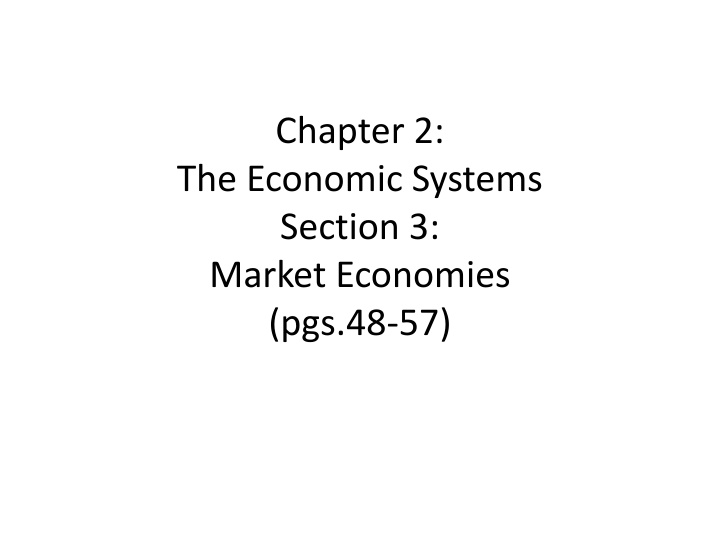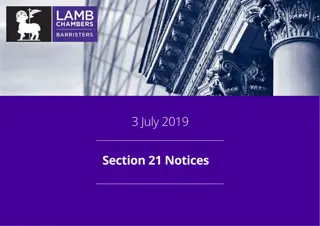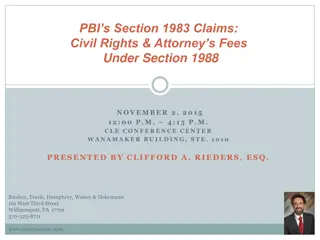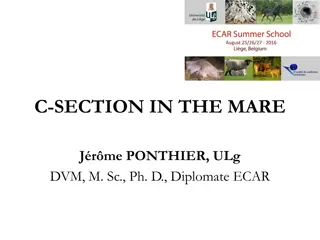
Key Concepts of Market Economies: Private Property, Limited Government, Voluntary Exchange, Competition
Explore the essential elements of market economies, including self-interest, private property rights, the role of government, voluntary exchange, and competition. Learn how these factors contribute to the functioning of market systems and consumer sovereignty. Discover the importance of clear ownership, limited government involvement, and the dynamics of voluntary exchanges in market transactions.
Download Presentation

Please find below an Image/Link to download the presentation.
The content on the website is provided AS IS for your information and personal use only. It may not be sold, licensed, or shared on other websites without obtaining consent from the author. If you encounter any issues during the download, it is possible that the publisher has removed the file from their server.
You are allowed to download the files provided on this website for personal or commercial use, subject to the condition that they are used lawfully. All files are the property of their respective owners.
The content on the website is provided AS IS for your information and personal use only. It may not be sold, licensed, or shared on other websites without obtaining consent from the author.
E N D
Presentation Transcript
Chapter 2: The Economic Systems Section 3: Market Economies (pgs.48-57)
Key Concepts of Market Economies https://c2.staticflickr.com/4/3083/2539111053_578248a6eb_b.jpg In Market Economies people s economic behavior is motivated by self-interest. Self-interest leads to private property rights, which are rights of individuals and groups to own property. Property means everything that an individual owns, including factories, clothes, house, car, money, and even intellectual property like songs or ideas developed for inventions. Self-interest also leads to the market, or any place or situation in which people buy and sell resources and goods and services. A market could be anything from a farmers market to a cyber-market.
Private Property and Markets Large or small, real or virtual, the market is where people can exchange their private property for someone else s. Clear ownership is vital to any sale or exchange, private property rights are necessary to make markets work properly, b/c buyers have to be able to trust sellers. In protecting private property rights so that producers have motivation and consumers have trust, the government performs an important role in a market economy. http://cdn2-b.examiner.com/sites/default/files/styles/image_content_width/hash/b8/bb/b8bb98f1748140c2b93abfc01b041f42.jpg?itok=11es9KyZ
Limited Government Involvement In a market economy it is the government s job to stay out of the economy, this is called laissez faire, which is French for leave things alone. Laissez faire is often paired with capitalism, which is the foundation of market economies. Capitalism operates on the belief that, on their own, producers will create the goods and services that consumers demand. T/f there is no need for government involvement. Laissez faire capitalism is the pure market economy, h/w there are no pure market economies, in the real world all market economies have some government involvement. http://progressivecynic.files.wordpress.com/2013/11/gop-focus.jpg
Voluntary Exchange in Markets http://www.notbeinggoverned.com/wp-content/uploads/2014/06/FreeMarket1.jpg When a buyer and seller agree to do business together, they engage in a voluntary exchange. This is a trade in which the parties involved anticipate that benefits will outweigh the cost. In most market economies the product is exchanged for money. Self-interest guides voluntary exchange. Both parties are likely wanting a profit, a financial gain from a business transaction.
Competition and Consumer Sovereignty http://cdn3.epictimes.com/richardebeling/wp-content/uploads/sites/15/2015/02/Consumer-as-King-Cartoon.jpeg Market economies are also characterized by competition, the effort of two or more people, acting independently, to get the business of others by offering the best deal. You are free to decide whatever product you want. This gives the consumer the real power in the market. Consumer sovereignty is the idea that b/c consumers are free to purchase what they want and to refuse products they do not want, they have the ultimate control over what is produced. Sovereignty means supreme authority.
Specialization and Markets http://image.slidesharecdn.com/capitalism-and-markets2832/95/capitalism-and-markets-23-728.jpg?cb=1190305241 A market economy encourages efficient use of resources by allowing people and businesses to specialize in what they do best. Specialization is a situation in which people concentrate their effects in the areas in which they have an advantage. People specialize by taking jobs they are good at, make money, and then they can buy what they need.
Circular Flow in Market Economies All of the fundamental characteristics combine to allow a market economy to function. And you can these characteristics in a circular flow model, which visualizes how all interactions occur in a market economy households which are made up of individuals like you, and businesses. It also shows the two markets where households and businesses meet that for goods and services, and that for resources. https://stevenduan.files.wordpress.com/2010/07/circular-flow-model1.gif?w=640
Product Markets http://img.docstoccdn.com/thumb/orig/93646292.png The market for goods and services is called the product market. This is the market you probably know best. It is not so much a place as it is a set of activities. Whenever or wherever individuals purchase goods or services they are doing so in the product market.
Factor Markets http://bloximages.chicago2.vip.townnews.com/auburnpub.com/content/tncms/assets/v3/editorial/d/68/d684e3a0-bc32-11e4-b46a-b36046ac6d74/54ec8e132c01a.image.jpg?resize=620%2C414 To run a business, firms must, purchase what they need from the factor market, the market for the factors of production land, labor, capital, and entrepreneurship. In the factor market, businesses are the customers and individuals are the producers. Example: a restaurant buys your labor as a server.
Advantages of a Market Economy Economic Freedom and Political Freedom are chief advantages in a market economy. Individuals are free to develop their interests and talents in work they find satisfying. The government is not heavily involved in the economy. The profit motive serves as a reward for hard work and innovation. http://11244-presscdn-0-93.pagely.netdna-cdn.com/wp-content/uploads/2014/03/Profit-SC.jpg
Disadvantages of a Market Economy In a pure market economy, the economic good of the individual is the primary focus. There is no mechanism for providing public goods and services, like national defense, b/c it would not be profitable from a strictly economic viewpoint to do so. Also, it does not provide security to those who, b/c of sickness or age, cannot be economically productive. It cannot stop unequal distribution of wealth. This is why most market economies have some government involvement and we will study this in section 4. http://www.uscg.mil/top/missions/img/defense2.jpg











